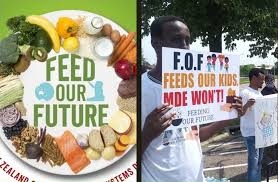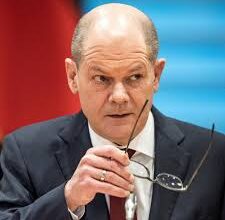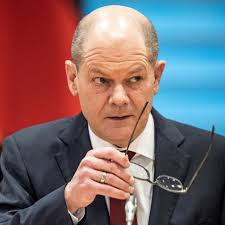The greatest pandemic-related fraud operation so far, according to US officials, involved the theft of $250 million from a federal program that distributes meals to low-income children. 48 people were charged in Minnesota with conspiracy and other offenses on Tuesday.
According to federal prosecutors, the defendants set up businesses that represented themselves as providing food to tens of thousands of kids throughout Minnesota, then applied for reimbursement for those meals through the food nutrition programs run by the U.S. Department of Agriculture. Few meals were ever given, according to the prosecution, and the defendants used the money to purchase expensive vehicles, real estate, and jewelry.
The US attorney for Minnesota, Andy Luger, stated at a press conference that “this $250 million is the floor.” “Our inquiry is ongoing.”
A lot of the businesses that advertised that they were serving meals were supported by the charity “Feeding Our Future”, which submitted the businesses’ claims for payment. Aimee Bock, the founder and executive director of Feeding Our Future, was one of the individuals charged; according to the prosecution, she and other members of her organization submitted false claims for reimbursement and received kickbacks.
Kenneth Udoibok, Bock’s attorney, stated that the indictment “doesn’t suggest guilt or innocence.” He indicated he would reserve further comment until he had seen the indictment.
Bock denied taking money and claimed she never saw any proof of fraud in interviews conducted after law authorities investigated numerous locations in January, including Bock’s home and workplace.
The U.S. Department of Justice designated pandemic-related fraud prosecution a top priority earlier this year. The agency has already brought charges in more than 1,000 criminal instances involving losses greater than $1.1 billion as part of its enforcement operations connected to more than $8 billion in potential pandemic fraud.
Officials from the federal government condemned the alleged deception, calling it “brazen,” and said it concerned a program meant to feed kids who needed assistance during the pandemic. The Minneapolis FBI office’s special agent in charge, Michael Paul, described it as “an astounding exhibition of dishonesty.”
According to Luger, the government received invoices for more than 125 million fictitious meals, with some offenders inventing child’s identities using an online random name generator. He showed a paper for compensation that claimed a location provided exactly 2,500 meals per day, Monday through Friday, without ever having any children absent due to illness or any other reason.
These kids were just made up, Luger stated.
He claimed that the government has so far obtained $50 million in cash and assets and anticipates obtaining more.
Multiple accusations against the Minnesota defendants include conspiracy, wire fraud, money laundering, and bribery. Some of them, according to Luger, was detained on Tuesday morning. At the news conference, the authorities announced 47 indictments. A 48th person, who was allegedly planning to travel to Ethiopia on a one-way flight on Tuesday night, was detained following the prosecutors’ news conference.
The federal child nutrition programs of the USDA, which give food to children and adults from low-income families, were the accused focus of the alleged conspiracy, according to court records. The state department of education in Minnesota is responsible for managing the funding, and historically, children have received meals through educational institutions like schools or daycare facilities.
The locations where the meal is served are supported by government or nonprofit organizations, such as Feeding Our Future. For submitting claims, sponsoring the sites, and disbursing the cash, the sponsoring agency retains 10% to 15% of the reimbursement amounts as an administrative charge.
However, some of the norms for locations to take part in the federal food nutrition programs were disregarded during the epidemic. The USDA permitted participation from for-profit eateries and authorized food to be provided outside of formal educational settings. The defendants allegedly used these adjustments “to profit themselves,” according to the indictment documents.
According to the records, Bock monitored the plan and, along with Feeding Our Future, funded the establishment of roughly 200 locations for the federal child nutrition program around the state, knowing that those sites would later make false claims.
The indictments state that despite having little to no staff and little to no expertise providing this volume of meals, the locations falsely claimed to be feeding meals to thousands of youngsters every day within days or weeks of their formation.
In one instance, a modest, west-central Minnesota restaurant in a storefront served only a few dozen customers every day on average. According to one accusation, two defendants offered the owner $40,000 per month for the use of his restaurant and subsequently charged the government for about 1.6 million meals during the first 11 months of 2021. Only 33 of the names on the list — which represented over half of the pupils enrolled in the local school district — were those of actual students, according to the indictment.
Bock and other workers got extra payments, which were frequently covered up as “consultant fees” sent to sham organizations, according to the charging documents. Feeding Our Future collected close to $18 million in administrative fees from federal child feeding program monies in just 2021. Feeding Our Future received $307,000 in payments from the USDA in 2018, $3.45 million in 2019, and $42.7 million in 2020, according to an FBI affidavit that was unsealed earlier this year. In 2021, the number of reimbursements increased to $197.9 million.
According to court records, the Minnesota Department of Education had growing concerns about the Feeding Our Future-sponsored locations’ rapid expansion as well as their rising reimbursement rates.
The agency started carefully reviewing Feeding Our Future’s site applications, and it rejected many of them. Bock responded by filing a lawsuit against the department in November 2020, claiming discrimination on the grounds that most of her sites were based on immigrant populations. Since then, that case has been dropped.



















